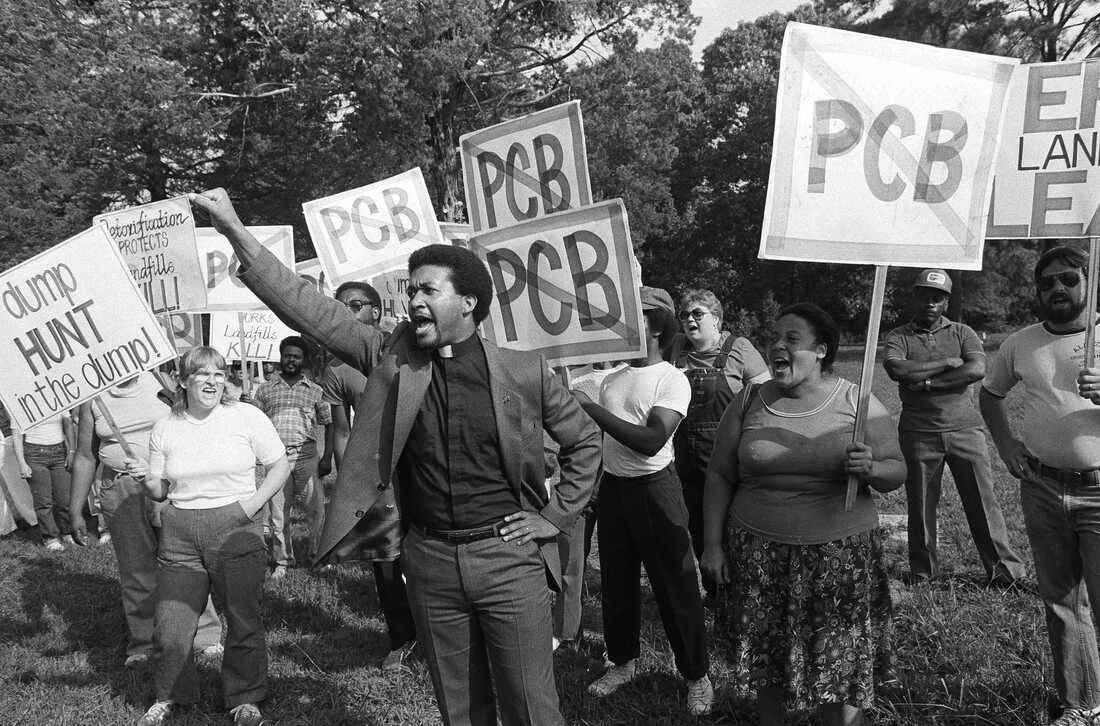From NPR:
Deborah and Ken Ferruccio were driving in their red truck down a rural North Carolina highway one night in 1978 when they suddenly came upon big yellow signs reading: "Caution, PCB chemicals spilled along roadways." There was a three-foot swath of a brown substance along the sides of the road that was smelly and seemed toxic.
"I was very confused because I knew something about chemicals and I didn't know exactly the specifics on PCBs, but the signs indicated they were very serious," Ken says.
Immediately they wondered if the danger was airborne, and whether they should close the windows — or open them. Should they be worried about exposure at all, since they weren't in direct contact with the sludge?
Ken didn't know what to do.
"And it was literally like the awakening of our lives," Deborah says.
They were shaken by the experience. But it was just the beginning of their encounter with polychlorinated biphenyls, or PCBs — highly toxic human-made industrial chemicals used in factories. The more they learned about PCBs, the more concerned they got. And then they organized to fight back.
All around the world, there's a tragic history of industries dumping their waste or setting up their most hazardous facilities in communities viewed as politically powerless or less likely to protest their presence.
But the people of Warren County found that they were not powerless. Fueled by the spirit of the civil rights movement, they challenged their own political leaders over the toxic chemicals being dumped in their community. In the process, they helped birth a national movement, one that would eventually put environmental justice on the national agenda — and is shaping the fight for climate action today.


